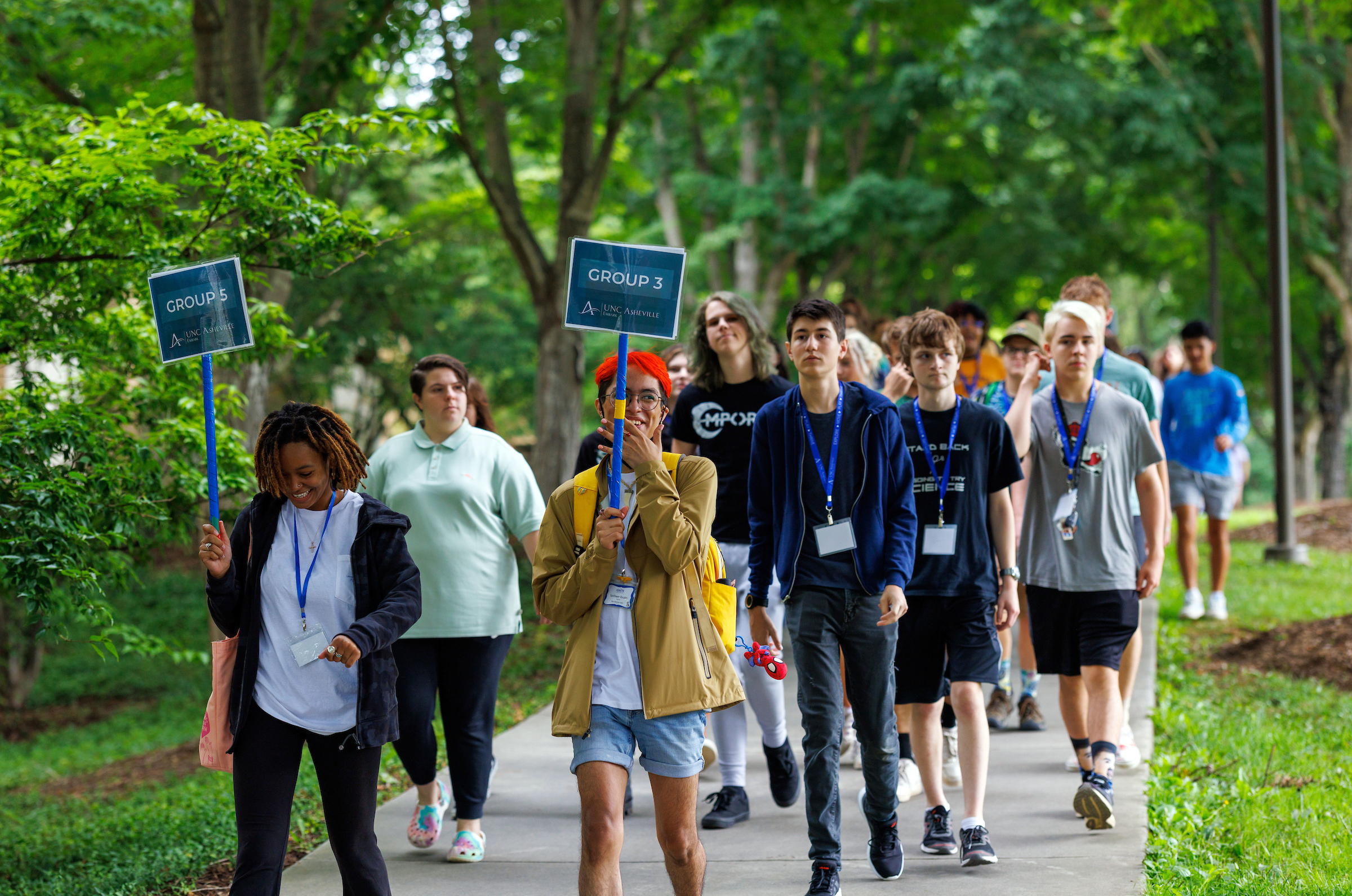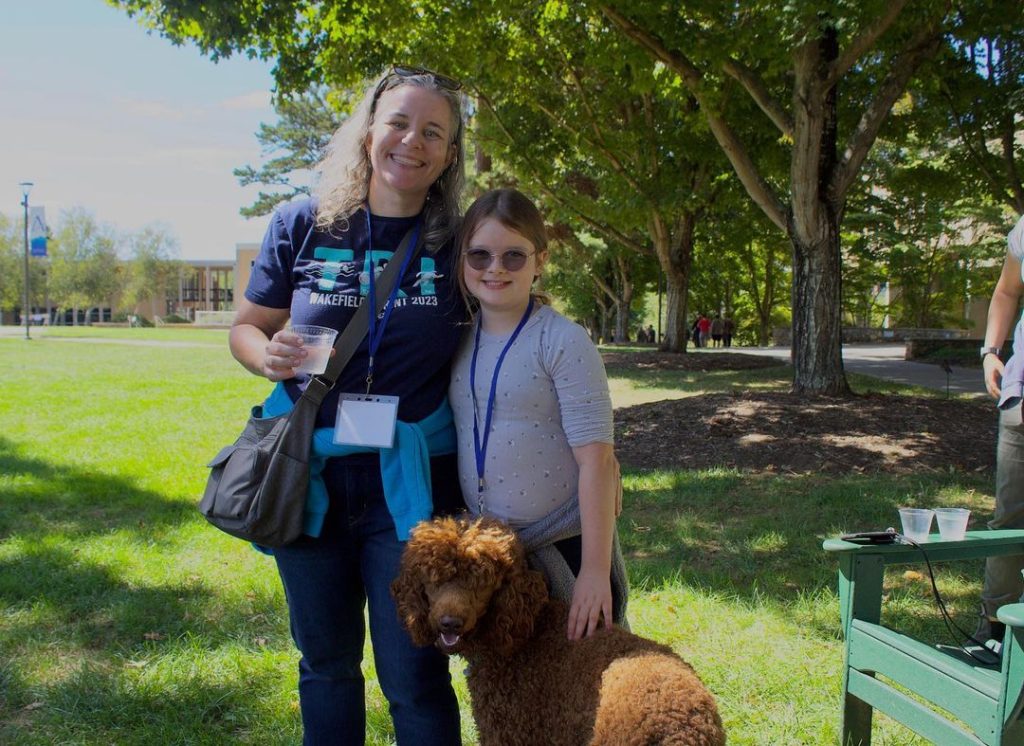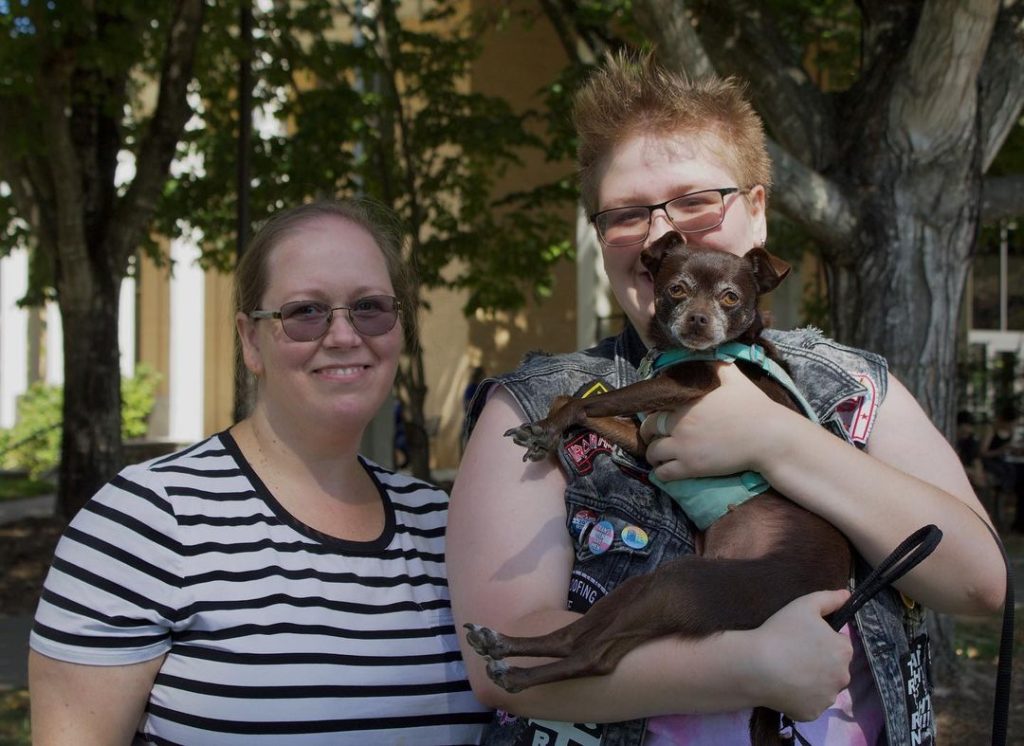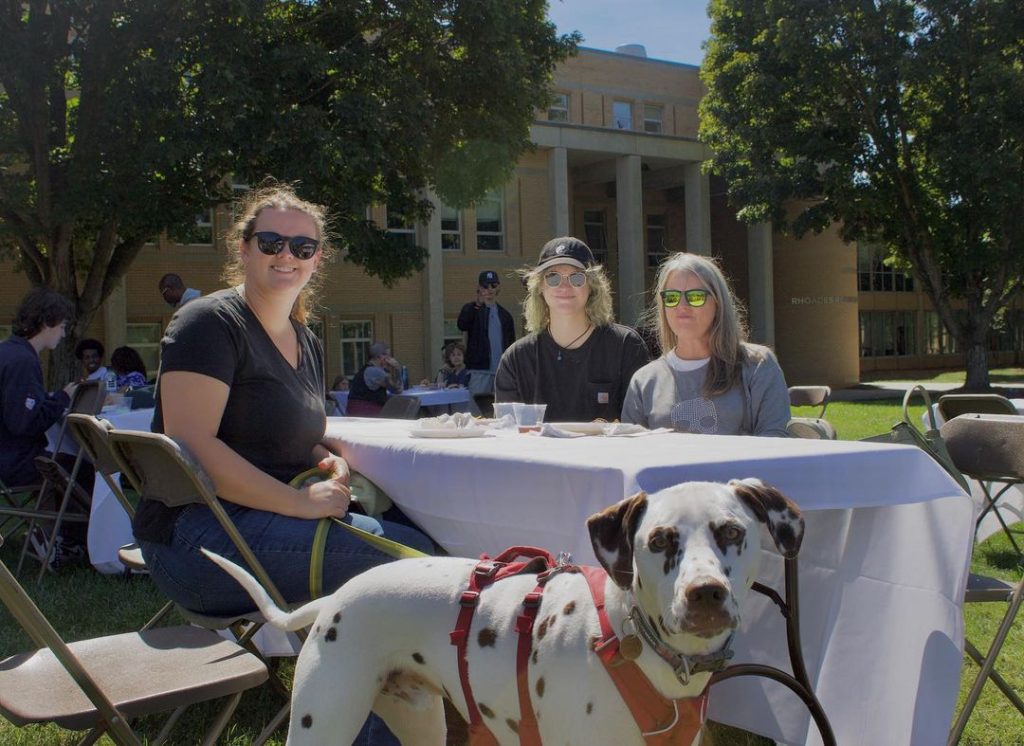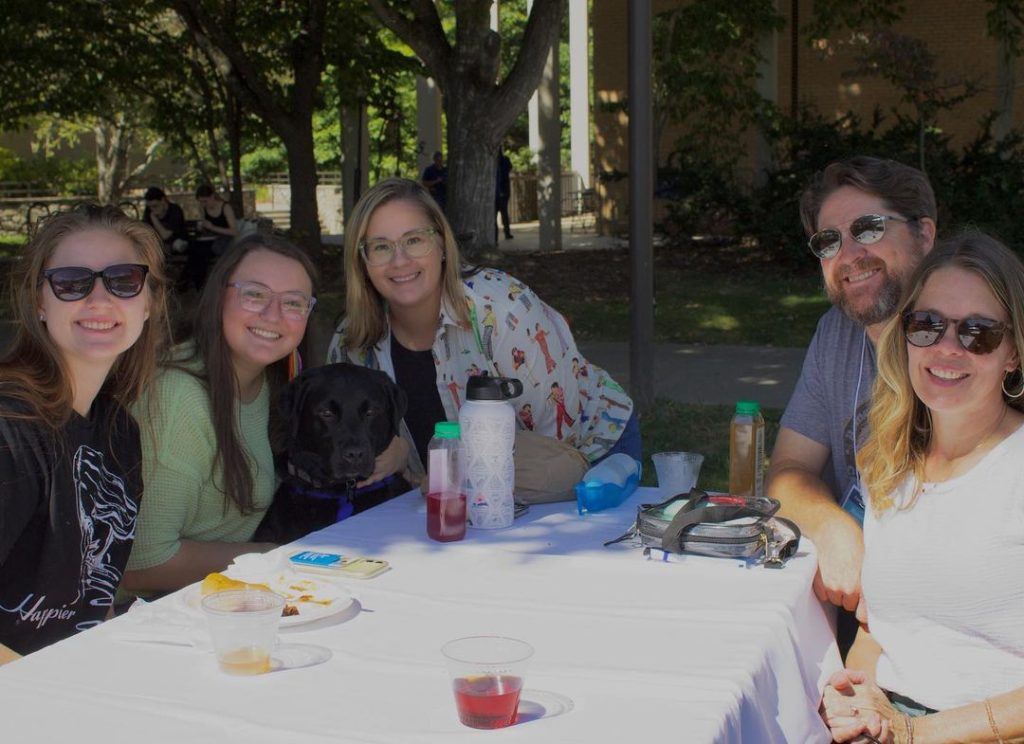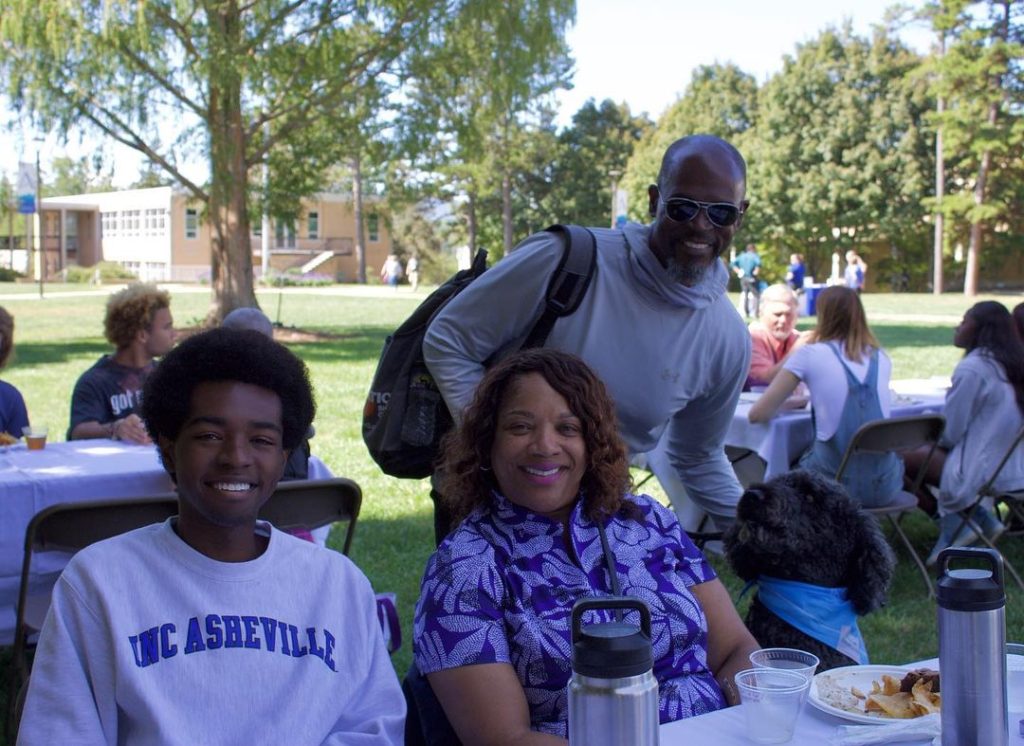Welcome, Bulldogs!
The Office of Student Transitions and Family Programs is here to guide and support you as you start your journey at UNC Asheville. We serve as a resource for students and families to help with the successful transition in and through college life. Our programs and services will connect you with campus resources and provide opportunities for social engagement and exploration. Our office also offers programming and support to current students throughout the school year specifically designed for first-generation students, transfer students, and active service members and veterans.
We are delighted to be a part of your college experience. Please reach out if you have any questions.
Information for New Students
EmBark Orientation: August 14-18, 2024

EmBark Orientation is your introduction to life as a student at UNC Asheville. This is a time for you to get settled and to connect with fellow students and campus resources. We’ll answer all of your questions and make sure that you have the support you need to have a successful transition into college life.
All first-year students are required to attend EmBark Orientation from August 14-18, 2024. Transfer students can participate in EmBark Orientation or attend a Summer Welcome Day.
AVLBound Portal
Over the summer, you’ll be asked to complete several tasks to prepare for your arrival on campus in August. All information about these tasks and confirmation of completed steps can be found in the Enrollment Checklist in your AVLBound Portal.
Parents and Families
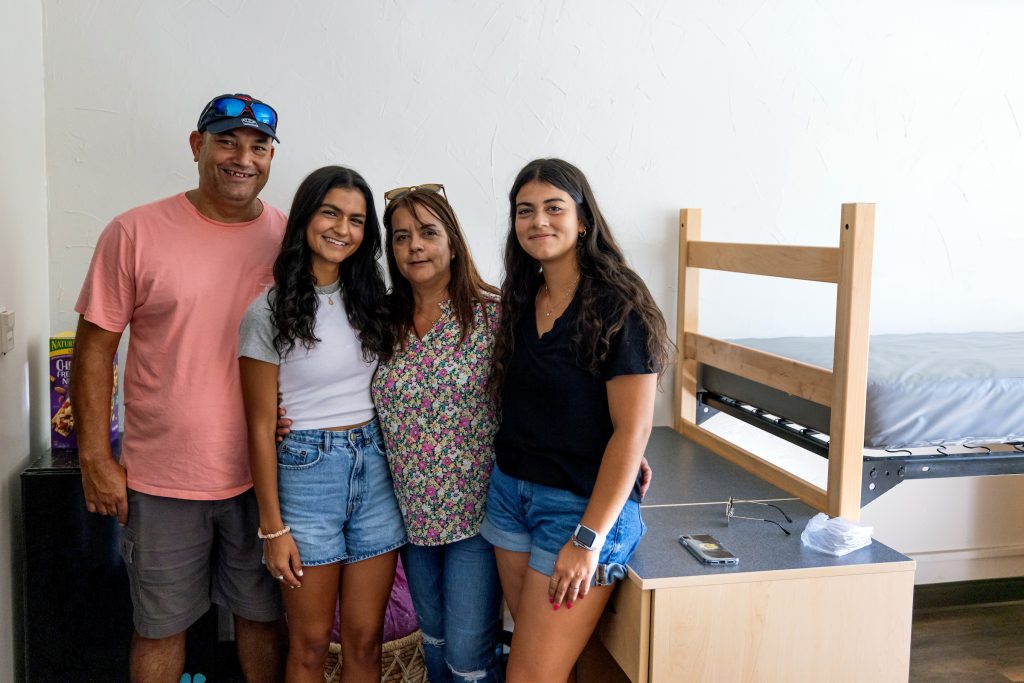
We understand and appreciate the important role that parents and family members play in their student’s overall success. We value the opportunity to establish relationships with you and are here to help in any way we can. Through programming like Summer Welcome Days and Family Weekend, you’ll experience firsthand the sense of community and pride that exists throughout our campus. We can’t wait to introduce you to the faculty and staff who have developed UNC Asheville into a thriving living and learning environment for your students.
We are here to serve as a continuing resource for you. Should you have any questions or concerns, you can contact us at transition@unca.edu or 828.232.2417.
Family Weekend
The next Family Weekend will take place in September 2024. Please check back for exact dates and registration information.
Join us for a fun-filled weekend with your loved ones at UNC Asheville. Family members of students in any class – first-year, sophomore, junior, or senior – are encouraged to attend! Explore the beautiful campus and take part in guided tours to discover the rich history and culture of Asheville. Don’t miss the chance to meet esteemed faculty members and learn about the exceptional academic programs offered at our University. For the sports enthusiasts, we’ll have a men’s soccer game during the weekend. Mark your calendars and get ready for an unforgettable weekend full of laughter, joy, and cherished family time. We can’t wait to welcome you to Family Weekend 2024!
Join the UNC Asheville Family Experience to stay up to date on events and programming happening on campus and learn about resources available to you and your students. Through this portal, you can sign up for newsletters, get alerts about events, ask questions, and much more!
Meet Our Team
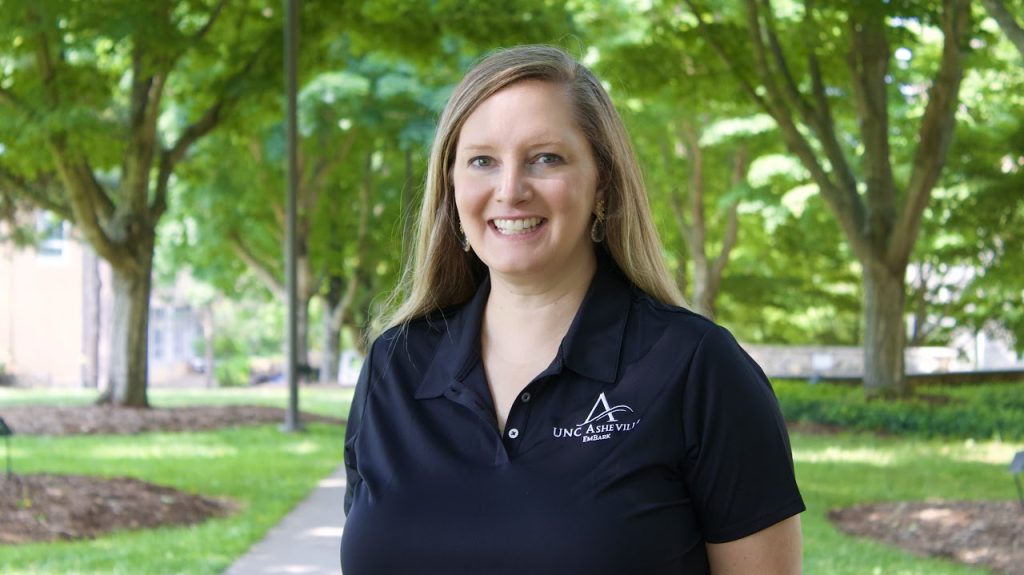
Sarah Smith
Director of Student Transitions & Family Programs
ssmith27@unca.edu
828.232.6584
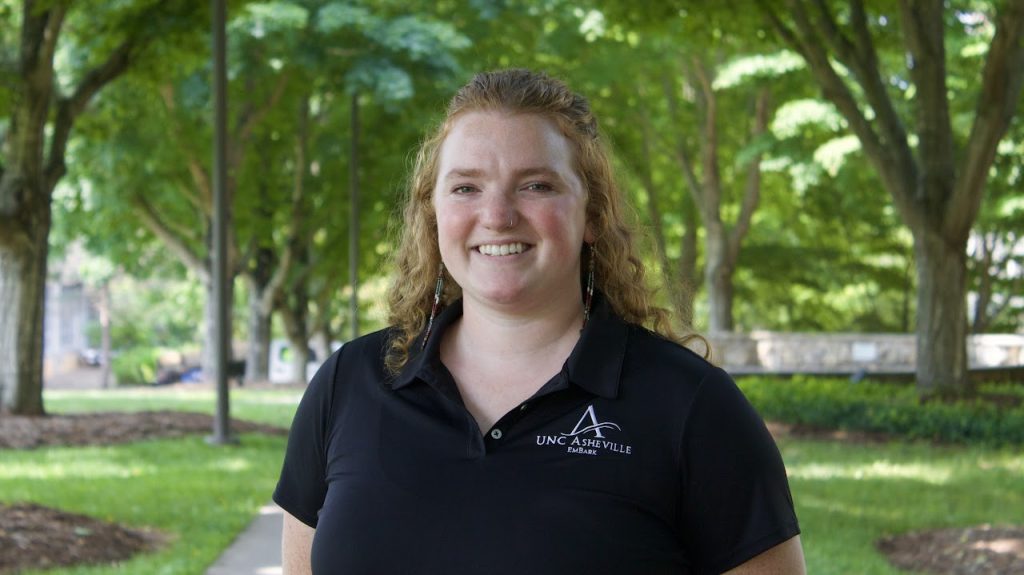
Abby Genter
Associate Director of Student Transitions & Family Programs
agenter@unca.edu
828.232.5131
Contact Us
Office Hours: Monday – Friday, 9 a.m. – 5 p.m.
| Student Transitions & Family Programs |
| Highsmith Student Union 301 One University Heights, CPO 1200 Asheville, NC 28804 |
| Phone: 828.232.2417 |
| Email: transition@unca.edu |
| Instagram: @uncaembark |

